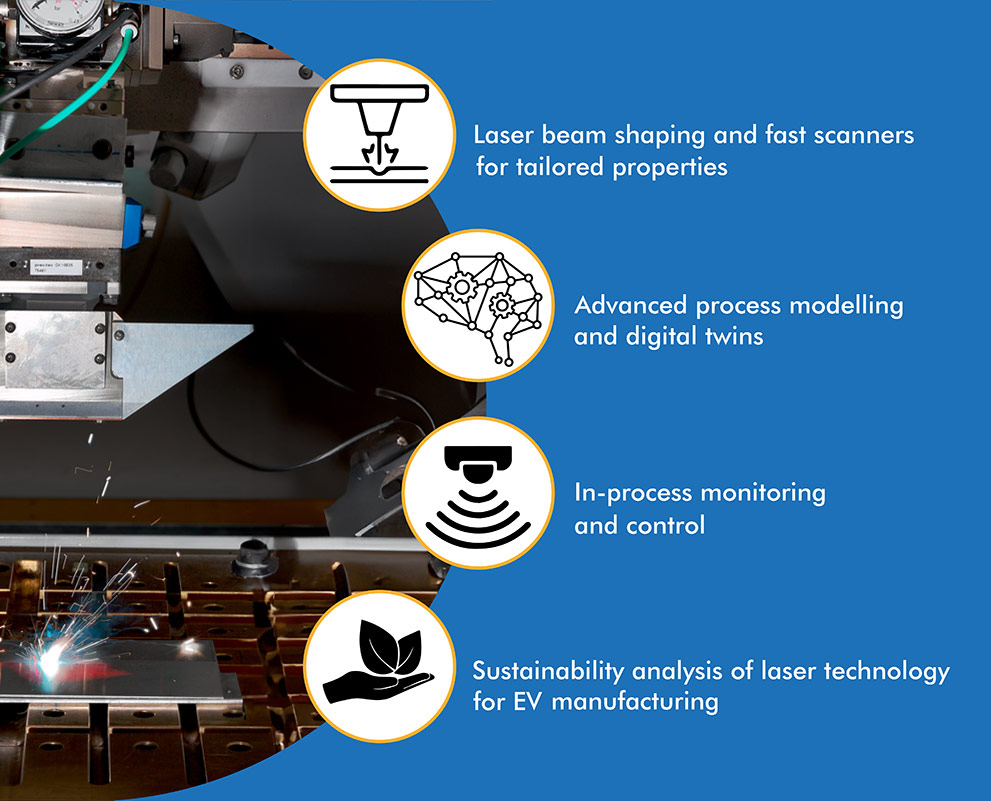



Lasers4NetZero will improve the understanding of the interaction of laser with materials (copper, aluminium, steel) aided by laser beam shaping and ultra-fast scanning technologies.
Lasers4NetZero we will develop new tools for prediction of laser processes and enhance our capability to model and predict the response of the material to the laser inputs.
Lasers4NetZero we will implement smart production technologies, aided by ML/AI, and validate new methodologies for quality inspection and control.
Lasers4NetZero we will define strategies for reducing the carbon footprint in EV manufacturing, along with LCA.
With the transportation industry accounting for 28% of global energy usage in 2022 and 37% of CO2 emissions, more needs to be done to encourage the transition away from fossil fuels. Current state-of-the-art identifies laser material processing technologies the heart of e-vehicles manufacturing. Advances in laser technologies and new generation scanning optics in fuel cell and battery manufacturing have the potential to offer enhanced utilisation of materials, improved process efficiency and product quality, allowing significant reduction in CO2 equivalent. Lasers4NetZero will establish an innovative training programme that aims at coaching a new generation of creative, entrepreneurial and innovative doctoral candidates (PhDs) focused on laser material processing, artificial intelligence for quality control, advanced process simulation and predictive lifecycle and sustainability analysis for e-vehicles manufacturing.

